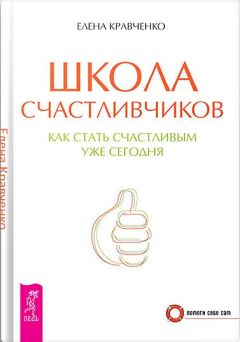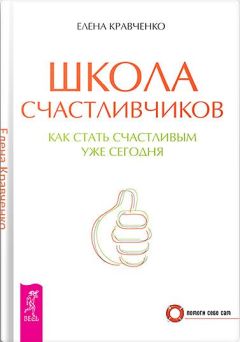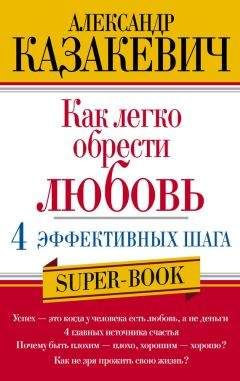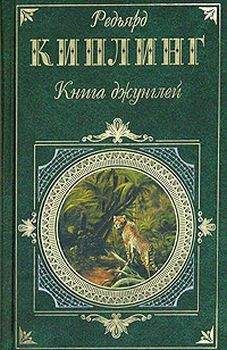Редьярд Киплинг - Английский с Редьярдом Киплингом. Рикки-Тикки-Тави / Rudyard Kipling. Rikki-Tikki-Tavi
“H’m (гм)!” said Rikki-tikki, “that is very sad (это очень печально) – but I am a stranger here (но я здесь посторонний = недавно; stranger – иностранец, чужестранец; незнакомец, посторонний). Who is Nag (кто такой Наг)?”
It was Darzee, the Tailorbird, and his wife. They had made a beautiful nest by pulling two big leaves together and stitching them up the edges with fibers, and had filled the hollow with cotton and downy fluff. The nest swayed to and fro, as they sat on the rim and cried.
“What is the matter?” asked Rikki-tikki.
“We are very miserable,” said Darzee. “One of our babies fell out of the nest yesterday and Nag ate him.”
“H’m!” said Rikki-tikki, “that is very sad – but I am a stranger here. Who is Nag?”
Darzee and his wife only cowered down in the nest without answering (Дарзи и его жена съежились в гнезде, не отвечая; to cower – сжиматься, съеживаться), for from the thick grass at the foot of the bush there came a low hiss (потому что из густой травы у основания куста донеслось тихое шипение; thick – толстый; густой; foot – ступня; подножие, основание; low – низкий; тихий) – a horrid cold sound that made Rikki-tikki jump back two clear feet (ужасный холодный звук, который заставил Рикки-Тикки отскочить на целых два фута; clear – светлый, ясный; чистый; полный, целый; абсолютный; to jump – прыгать; to jump back – отскочить). Then inch by inch out of the grass rose up the head and spread hood of Nag (затем дюйм за дюймом из травы поднялась голова и развернулся капюшон Нага; to rise; to spread – развертывать/ся/, раскидывать/ся/), the big black cobra (большой черной кобры), and he was five feet long from tongue to tail (имевшей пять футов длины от языка до хвоста; long – длинный). When he had lifted one-third of himself clear of the ground (когда он поднял одну треть себя = своего тела прямо над землей), he stayed balancing to and fro exactly as a dandelion tuft balances in the wind (он остановился, покачиваясь взад и вперед, точно так же, как /пушистая часть/ одуванчика покачивается на ветру; to balance – сохранять равновесие; балансировать, качаться; dandelion – одуванчик; tuft – пучок /перьев, травы, волос и т. д./, хохолок), and he looked at Rikki-tikki with the wicked snake’s eyes that never change their expression (и посмотрел на Рикки-Тикки злыми змеиными глазами, которые никогда не меняют своего выражения), whatever the snake may be thinking of (о чем бы ни думала змея).
Darzee and his wife only cowered down in the nest without answering, for from the thick grass at the foot of the bush there came a low hiss – a horrid cold sound that made Rikki-tikki jump back two clear feet. Then inch by inch out of the grass rose up the head and spread hood of Nag, the big black cobra, and he was five feet long from tongue to tail. When he had lifted one-third of himself clear of the ground, he stayed balancing to and fro exactly as a dandelion tuft balances in the wind, and he looked at Rikki-tikki with the wicked snake’s eyes that never change their expression, whatever the snake may be thinking of.
“Who is Nag (кто такой Наг)?” said he. “I am Nag (я – Наг). The great God Brahm put his mark upon all our people (великий Бог Брахма наложил свой знак на весь наш народ; mark – знак; метка), when the first cobra spread his hood to keep the sun off Brahm as he slept (когда первая кобра развернула свой капюшон, чтобы защитить Брахму от солнца, пока он спал; to spread – развертывать/ся/, раскидывать/ся/; to keep – держать; защищать, охранять). Look, and be afraid (смотри и бойся)!”
He spread out his hood more than ever (он еще больше: «более чем когда-либо» развернул свой капюшон), and Rikki-tikki saw the spectacle-mark on the back of it that looks exactly like the eye part of a hook-and-eye fastening (и Рикки-Тикки увидел на его задней части очковую метку, которая выглядела в точности как /стальная/ петелька: «петельная часть» от застежки на крючок: «застежки “крючок + петля”»; spectacles – очки; eye – глаз; ушко /иголки/; петелька; проушина; hook – крюк, крючок; to hook-and-eye – застегивать на крючки; fastening – связывание, скрепление; замыкание, соединение; застежка на одежде). He was afraid for the minute (на мгновение он испугался; minute – минута; мгновение; миг, момент), but it is impossible for a mongoose to stay frightened for any length of time (но для мангуста невозможно оставаться испуганным = бояться на протяжении какого-то /более длительного/ времени = долго; possible – возможный; length – длина; продолжительность, протяженность /во времени/), and though Rikki-tikki had never met a live cobra before (и хотя Рикки-Тикки никогда раньше не встречал живой кобры), his mother had fed him on dead ones (его мать кормила его кобрами мертвыми; to feed), and he knew that all a grown mongoose’s business in life was to fight and eat snakes (он знал, что все задачи = главная задача взрослого мангуста в жизни – это сражаться со змеями и поедать /их/). Nag knew that too (Наг тоже знал это), and at the bottom of his cold heart (и в глубине своего холодного сердца; bottom – низ, нижняя часть; самая отдаленная часть), he was afraid (он боялся).
“Who is Nag?” said he. “I am Nag. The great God Brahm put his mark upon all our people, when the first cobra spread his hood to keep the sun off Brahm as he slept. Look, and be afraid!”
He spread out his hood more than ever, and Rikki-tikki saw the spectacle-mark on the back of it that looks exactly like the eye part of a hook-and-eye fastening. He was afraid for the minute, but it is impossible for a mongoose to stay frightened for any length of time, and though Rikki-tikki had never met a live cobra before, his mother had fed him on dead ones, and he knew that all a grown mongoose’s business in life was to fight and eat snakes. Nag knew that too and, at the bottom of his cold heart, he was afraid.
“Well (хорошо),” said Rikki-tikki, and his tail began to fluff up again (и его хвост снова начал распушаться; to fluff – встряхивать; распушить), “marks or no marks (/есть на тебе/ знаки или нет), do you think it is right for you to eat fledglings out of a nest (ты думаешь, что это правомерно для тебя = что ты имеешь право есть птенцов, /выпавших/ из гнезда; fledg(e)ling – оперившийся птенец; to fledge – выкармливать птенцов /до тех пор, пока они сами не смогут летать/; right – /прил./ правый, правильный; верный; справедливый (о поведении, поступках, высказываниях и т. п.); подходящий, надлежащий; уместный)?”
Nag was thinking to himself (Наг думал = размышлял про себя /о другом/), and watching the least little movement in the grass behind Rikki-tikki (следя за малейшим движением в траве позади Рикки-Тикки; little – маленький, небольшой; least – малейший, минимальный). He knew that mongooses in the garden meant death sooner or later for him and his family (он знал, что мангусты в саду означают смерть ему и его семье рано или поздно; soon – скоро, вскоре; в скором времени, в ближайшее время; late – поздно), but he wanted to get Rikki-tikki off his guard (и он хотел усыпить внимание Рикки-Тикки от его осторожности = усыпить внимание Рикки-Тикки; to get – получить; to get off – свести; guard – охрана, защита; бдительность, осторожность). So he dropped his head a little (поэтому он немного опустил голову; to drop – капать; опускать/ся/), and put it on one side (и положил = cклонил ее набок; side – сторона; бок).
“Let us talk (давай поговорим),” he said. “You eat eggs (ты /же/ ешь яйца). Why should not I eat birds (почему бы мне не есть птиц)?”
“Behind you (позади тебя)! Look behind you (посмотри позади себя = оглянись)!” sang Darzee (пропел Дарзи; to sing).
“Well,” said Rikki-tikki, and his tail began to fluff up again, “marks or no marks, do you think it is right for you to eat fledglings out of a nest?”
Nag was thinking to himself, and watching the least little movement in the grass behind Rikki-tikki. He knew that mongooses in the garden meant death sooner or later for him and his family, but he wanted to get Rikki-tikki off his guard. So he dropped his head a little, and put it on one side.
“Let us talk,” he said. “You eat eggs. Why should not I eat birds?”
“Behind you! Look behind you!” sang Darzee.
Rikki-tikki knew better than to waste time in staring (Рикки-Тикки знал, что лучше не терять времени, смотря /по сторонам/; to know – знать; to waste – терять даром; to stare – пристально смотреть, уставиться). He jumped up in the air as high as he could go (он подпрыгнул в воздух = вверх так высоко, как /только/ мог; to go – идти, ехать; двигаться), and just under him whizzed by (и как раз под ним со свистом пронеслась; to whizz – просвистеть, пронестись со свистом; делать /что-либо/ очень быстро, в бешеном темпе; to whizz by smth. – пронестисть со свистом мимо чего-либо) the head of Nagaina, Nag’s wicked wife (голова Нагайны, злой жены Нага). She had crept up behind him as he was talking (она подкрадывалась к нему сзади, пока он разговаривал; to creep – ползать; красться, подкрадываться), to make an end of him (чтобы прикончить его: «положить ему конец»). He heard her savage hiss as the stroke missed (он услышал ее свирепое шипение, когда она промахнулась; to hear; savage – дикий; злой, свирепый; stroke – удар; to miss – потерпеть неудачу). He came down almost across her back (он опустился /на лапы/ почти поперек ее спины = прямо ей на спину), and if he had been an old mongoose (и, будь он старым мангустом = будь он постарше), he would have known that then was the time to break her back with one bite (он знал бы, что теперь было /самое/ время прокусить ей спину одним укусом; to break – ломать, разбивать; to bite – кусать/ся/; bite – укус); but he was afraid of the terrible lashing return stroke of the cobra (но он боялся ужасного хлещущего возвратного удара кобры; to lash – хлестать, стегать, сильно ударять; lash – плеть, бич; рывок, стремительное движение /особ. чего-либо, что может сгибаться и разгибаться/; return – возвращение, возврат). He bit, indeed (конечно, он укусил /змею/; to bite), but did not bite long enough (но кусал недостаточно долго), and he jumped clear of the whisking tail (и /затем/ совсем отскочил от ее юркого хвоста; to whisk – смахивать, сгонять; быстро исчезнуть, юркнуть), leaving Nagaina torn and angry (оставив Нагайну, раненую и рассерженную; to tear – рвать/ся/, разрывать/ся/; оцарапать, поранить; angry – сердитый, злой).




